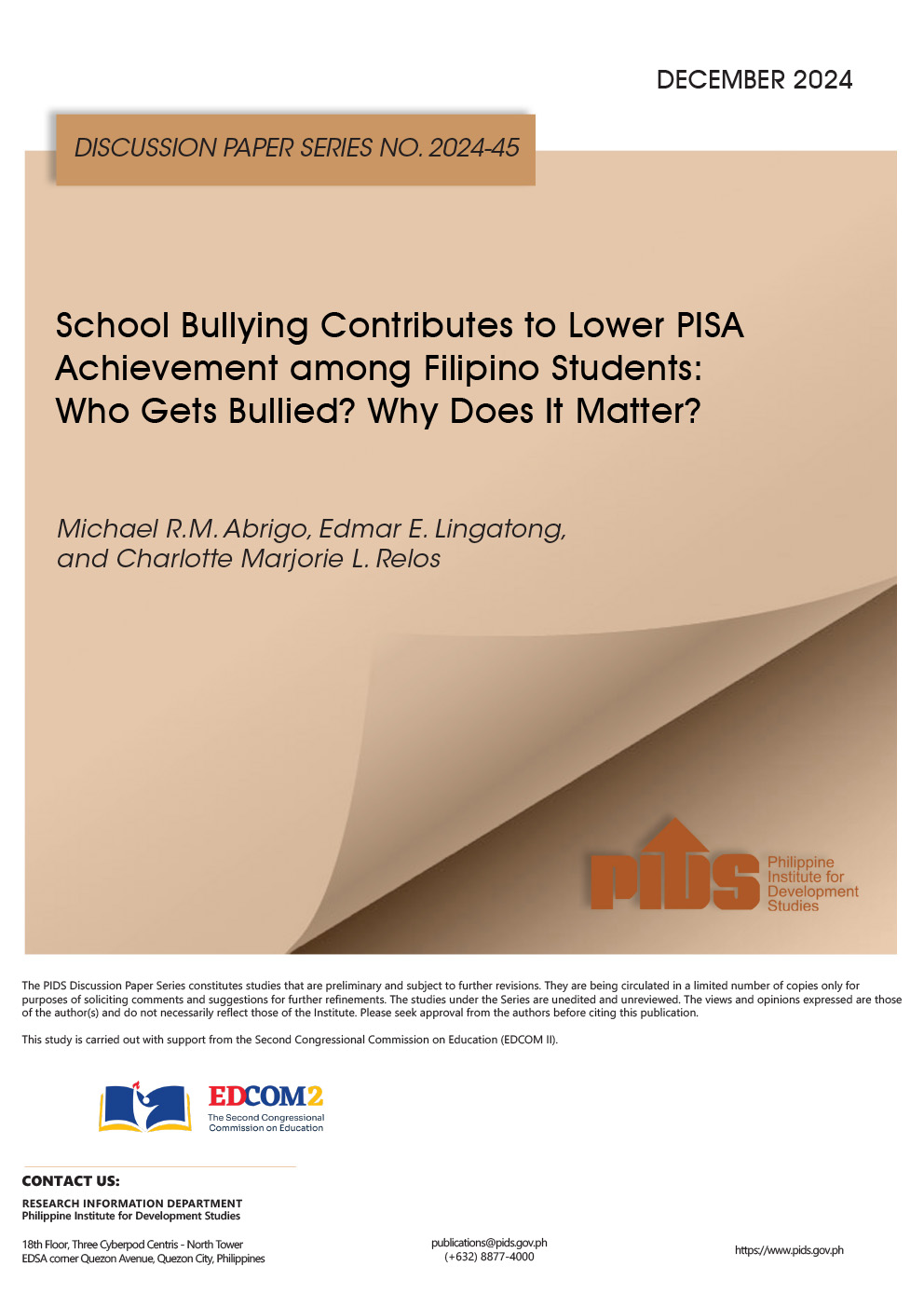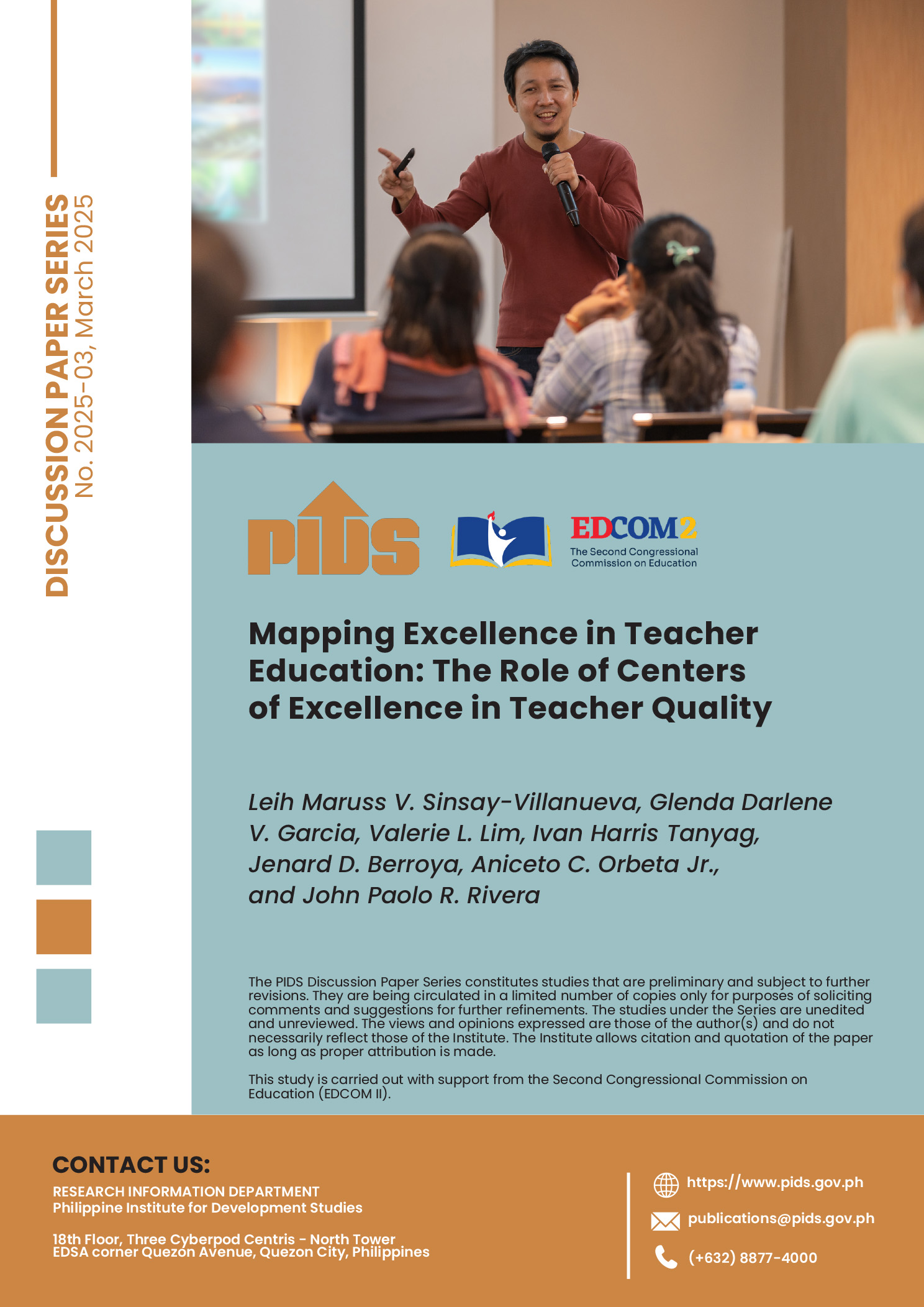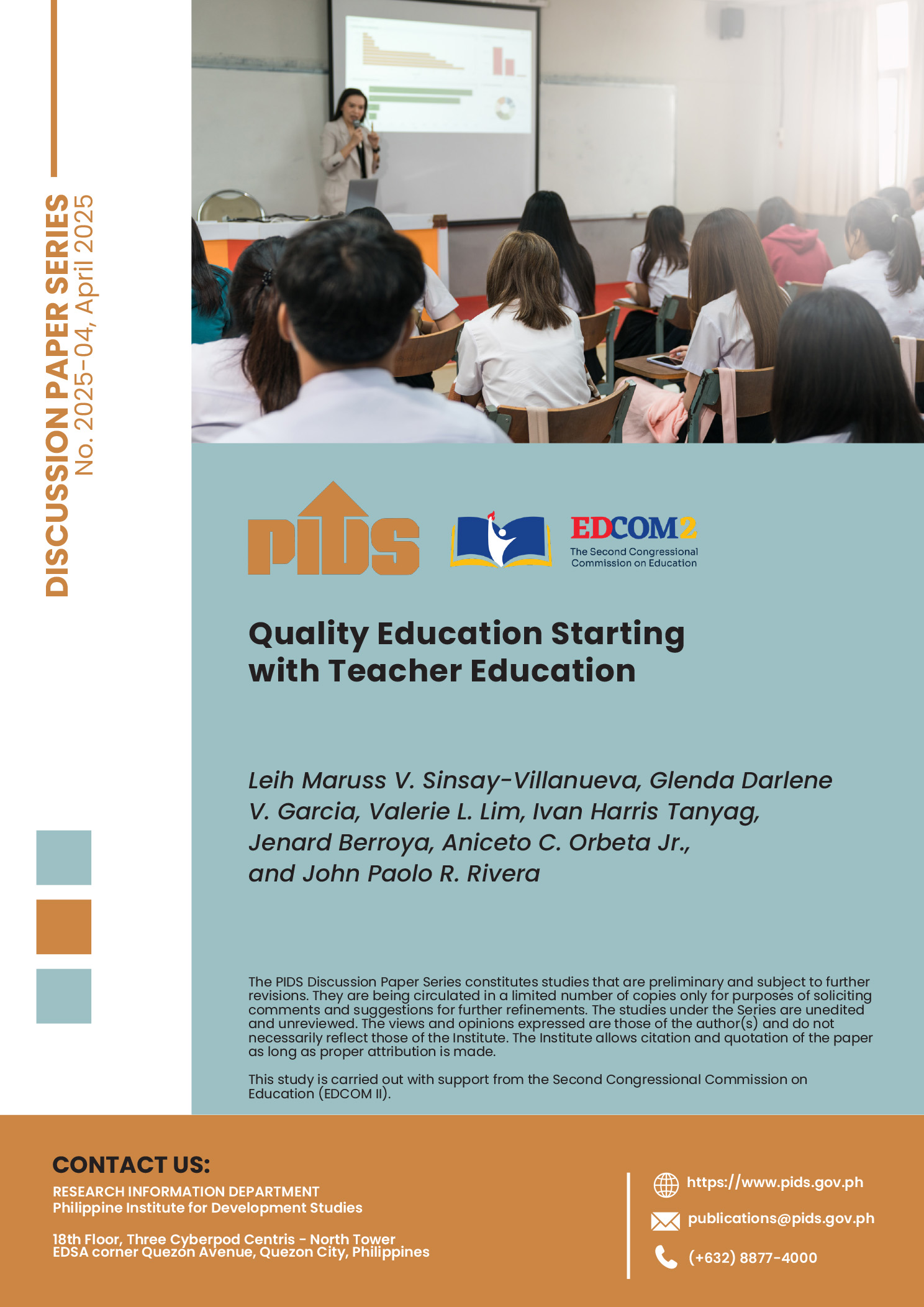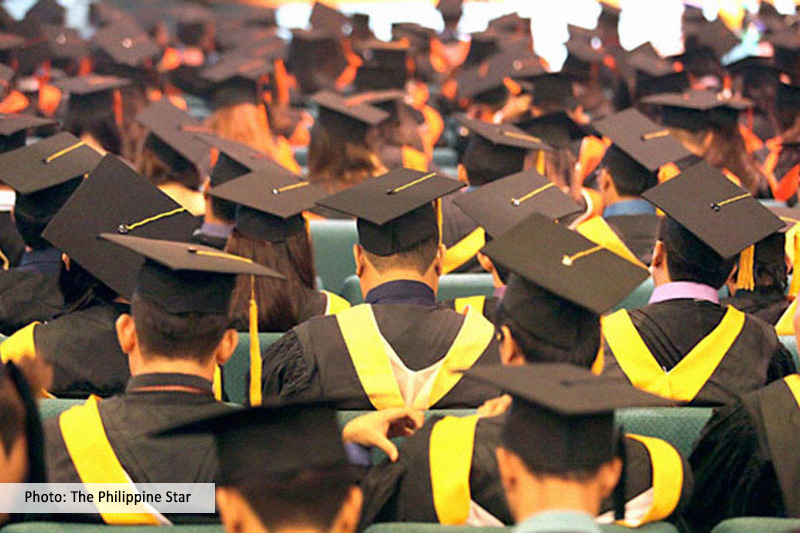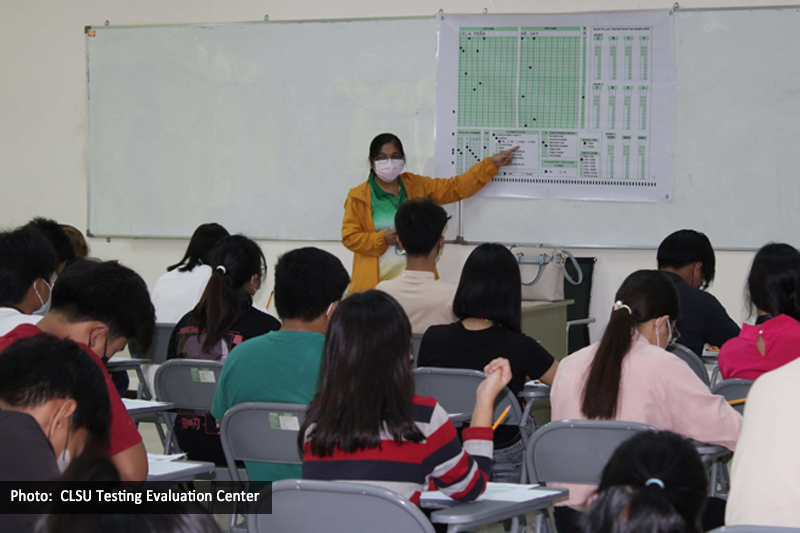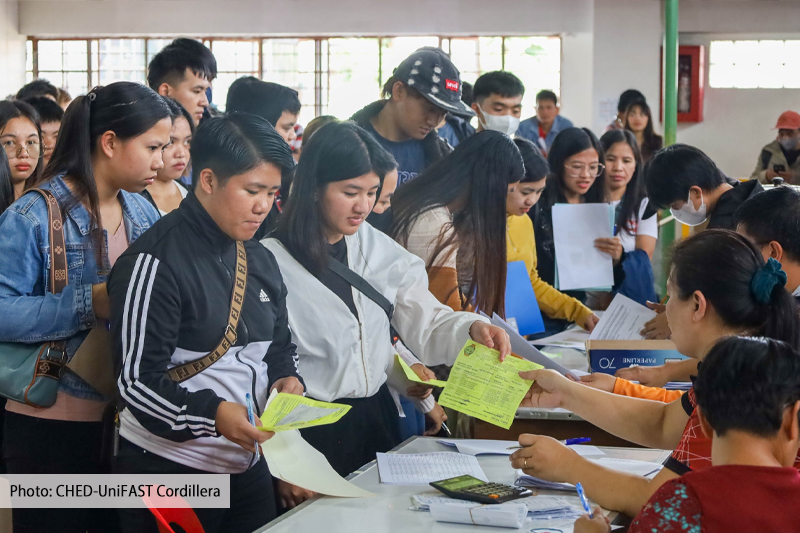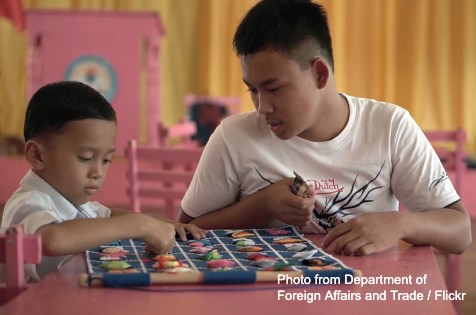
A study of state think tank Philippine Institute for Development Studies (PIDS) identified the lack of transportation, basic facilities, and infrastructures as major challenges in providing education to children with disabilities.
The authors of the study—Adrian Agbon and Christian Mina—recommended the provision of mobile special education (SPED) schools especially in far-flung areas. They also urged the government to initiate more activities and programs that will increase awareness about pupils/students with special needs, enhance the Alternative Learning System (ALS) or mobile teacher program of the Department of Education (DepEd), and put up more SPED facilities that cater to all types of disabilities by tapping local government units (LGUs) in providing regular venues for ALS classes.
Agbon and Mina, who wrote the study while at PIDS as research associates, also suggested strengthening the training programs specific to handling pupils/students with special needs as part of the retooling of teachers. They also proposed the development of learning modules on basic health care and entrepreneurial skills. According to them, this can be done by DepEd, in partnership with the Department of Health and the Department of Social Welfare and Development- Area Vocational Training Center, with the help of the Technical Education and Skills Development Authority. The trainings can be provided to persons with disabilities (PWDs) who have acquired the basic skills for employment as well as to their parents and guardians so they can enhance their livelihood opportunities.
Meanwhile, a related study of Save the Children Philippines (SCP) disclosed the barriers that hinder teachers of children with disabilities from using inclusive education strategies in the classroom.
Sierra Mae Paraan, basic education technical adviser of SCP, noted that such barriers include the teachers’ lack of knowledge or proficiency in sign language, inappropriate student group size, poor classroom management manifested through inadequate pacing, inadequate use of materials, lack of instructional dialogue, absence of safe learning environments for children with disabilities, and insufficient budget for inclusive education.
Paraan presented the study at a research forum organized by SCP and PIDS in support of the International Day of Persons with Disabilities.
Conducted as part of SCP’s Kabataang-Aralin Sa Lahat Ay Ibahagi (KASALI) Program, the study included six schools and six Early Childhood Care and Development centers in Metro Manila, with interviews and focus group discussions conducted among teachers, parents, and officials of the schools, Department of Education, and LGUs from June 2017 to January 2018.
Paraan revealed that prior to the trainings provided by the KASALI Program, teachers who handled children with disabilities were unaware that some of their practices are considered forms of discrimination, such as “labeling children or grouping them by ability all the time”.
She noted how culture influences the way teachers and parents perceive children with disabilities. While there are parents who have a more positive attitude toward children with disabilities and the idea of disability itself, “some parents, teachers, and education officials [still] hold a negative perception of children with disabilities… [they] continue [to perceive them] as a curse or their respective disability as contagious,” Paraan said.
This perception is manifested in the way parents handle their children, Paraan explained, citing that some parents would unintentionally discriminate their children by choosing to carry them to conceal their children’s physical disability or enrolling their kids in a normal school in an attempt to ‘normalize’ them.
“It is very important that parents are also made aware of these,” Paraan added.
The study also found that parents prefer to enroll their children in SPED centers due to concerns over bullying and the capacity of schools and teachers to provide the needs of their children.
To address these issues, the study called for interinstitutional planning and multistakeholdership collaboration.
“Ang pagsuporta at pagkamit ng inclusive education ay hindi lang nakaatang sa DepEd. Mahalaga na nag-uusap sa local level ang barangay, ang eskuwelahan, ang private sector, ang allied health professionals at ang academe kasi sa ganitong paraan makaka-contribute ang bawat isa at maa-achieve yung goals,” Paraan explained. ###
The authors of the study—Adrian Agbon and Christian Mina—recommended the provision of mobile special education (SPED) schools especially in far-flung areas. They also urged the government to initiate more activities and programs that will increase awareness about pupils/students with special needs, enhance the Alternative Learning System (ALS) or mobile teacher program of the Department of Education (DepEd), and put up more SPED facilities that cater to all types of disabilities by tapping local government units (LGUs) in providing regular venues for ALS classes.
Agbon and Mina, who wrote the study while at PIDS as research associates, also suggested strengthening the training programs specific to handling pupils/students with special needs as part of the retooling of teachers. They also proposed the development of learning modules on basic health care and entrepreneurial skills. According to them, this can be done by DepEd, in partnership with the Department of Health and the Department of Social Welfare and Development- Area Vocational Training Center, with the help of the Technical Education and Skills Development Authority. The trainings can be provided to persons with disabilities (PWDs) who have acquired the basic skills for employment as well as to their parents and guardians so they can enhance their livelihood opportunities.
Meanwhile, a related study of Save the Children Philippines (SCP) disclosed the barriers that hinder teachers of children with disabilities from using inclusive education strategies in the classroom.
Sierra Mae Paraan, basic education technical adviser of SCP, noted that such barriers include the teachers’ lack of knowledge or proficiency in sign language, inappropriate student group size, poor classroom management manifested through inadequate pacing, inadequate use of materials, lack of instructional dialogue, absence of safe learning environments for children with disabilities, and insufficient budget for inclusive education.
Paraan presented the study at a research forum organized by SCP and PIDS in support of the International Day of Persons with Disabilities.
Conducted as part of SCP’s Kabataang-Aralin Sa Lahat Ay Ibahagi (KASALI) Program, the study included six schools and six Early Childhood Care and Development centers in Metro Manila, with interviews and focus group discussions conducted among teachers, parents, and officials of the schools, Department of Education, and LGUs from June 2017 to January 2018.
Paraan revealed that prior to the trainings provided by the KASALI Program, teachers who handled children with disabilities were unaware that some of their practices are considered forms of discrimination, such as “labeling children or grouping them by ability all the time”.
She noted how culture influences the way teachers and parents perceive children with disabilities. While there are parents who have a more positive attitude toward children with disabilities and the idea of disability itself, “some parents, teachers, and education officials [still] hold a negative perception of children with disabilities… [they] continue [to perceive them] as a curse or their respective disability as contagious,” Paraan said.
This perception is manifested in the way parents handle their children, Paraan explained, citing that some parents would unintentionally discriminate their children by choosing to carry them to conceal their children’s physical disability or enrolling their kids in a normal school in an attempt to ‘normalize’ them.
“It is very important that parents are also made aware of these,” Paraan added.
The study also found that parents prefer to enroll their children in SPED centers due to concerns over bullying and the capacity of schools and teachers to provide the needs of their children.
To address these issues, the study called for interinstitutional planning and multistakeholdership collaboration.
“Ang pagsuporta at pagkamit ng inclusive education ay hindi lang nakaatang sa DepEd. Mahalaga na nag-uusap sa local level ang barangay, ang eskuwelahan, ang private sector, ang allied health professionals at ang academe kasi sa ganitong paraan makaka-contribute ang bawat isa at maa-achieve yung goals,” Paraan explained. ###

